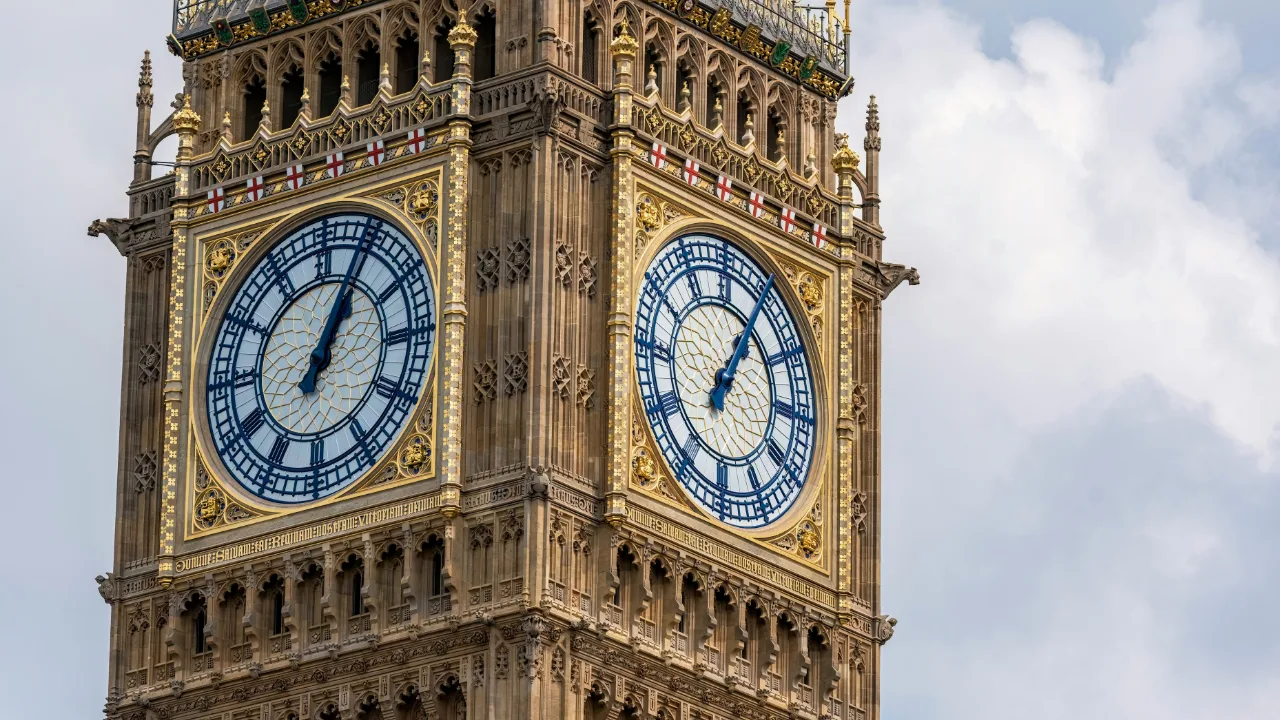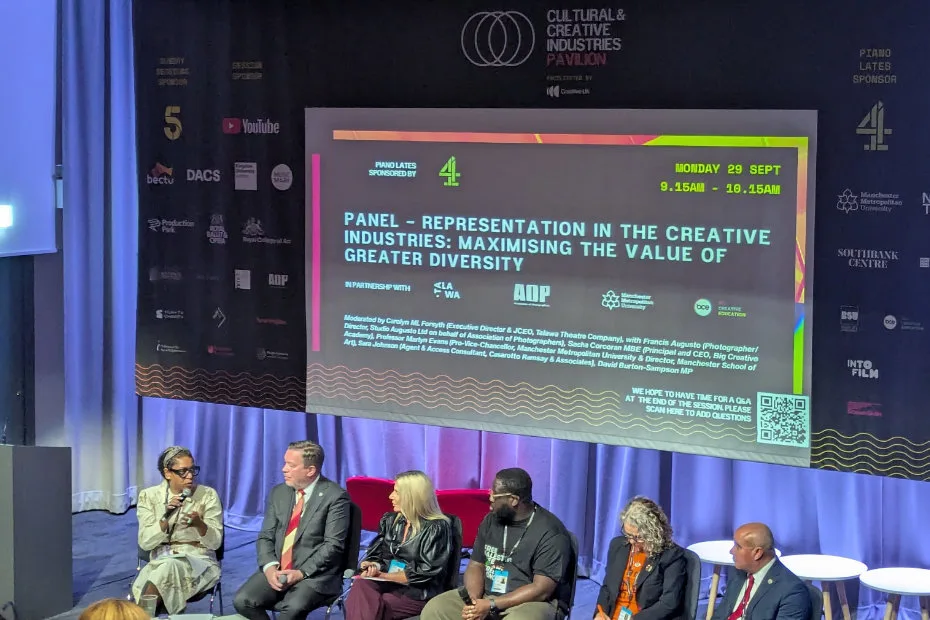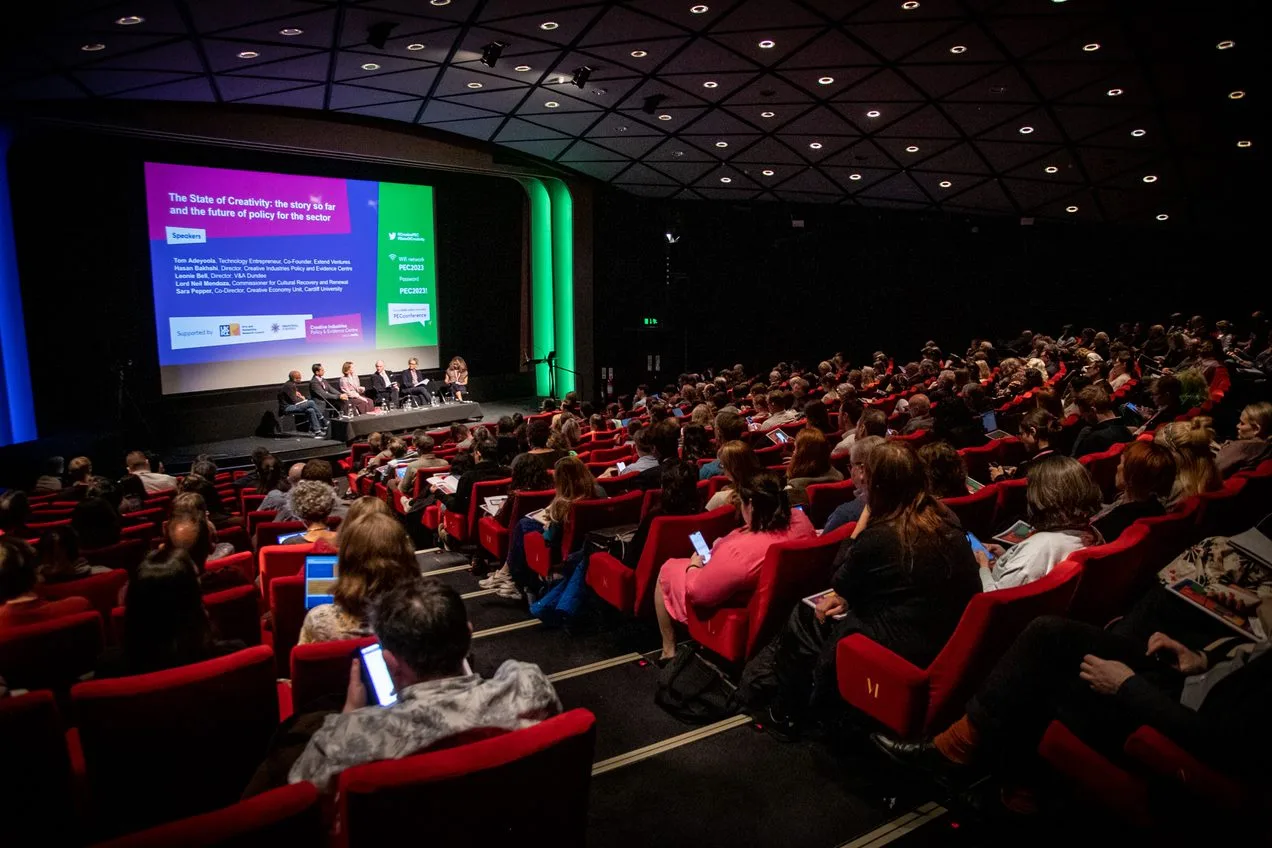The creative industries, from film and the wider screen industries to design, advertising and the digital economy, are vital to the UK economy. Dynamic, innovative, and export-orientated, they are one of the UK’s greatest success stories, growing at double the rate of the rest of the economy. This is in no small part due to the skills and talents of the UK’s creative workforce. As Sir Peter Bazalgette stated in his independent review of the sector for Government, “It is human creativity that drives the success of this sector”.
The creative industries rely on world leading capabilities and highly developed skills, employing significant numbers of STEM as well as humanities graduates. Drawing on the expertise of researchers, computer scientists, artists, makers, designers, and finance and marketing professionals, they contribute not only to economic performance, but also deliver substantial cultural benefits both in the UK and abroad. And while rapid technological advance threatens to make obsolete jobs in some parts of the workforce, creative occupations offer significant resilience, with over eight out of ten creative jobs in the UK expected to be resistant to future automation. As a consequence, we should in coming years see continued rises in the workforce share of creative occupations – as long as skills supply can match growing demands.
In this regard, the Creative Industries Policy and Evidence Centre (PEC) has a vital role to play. Leading insights on employment, it must support industry, policymakers and educators to effectively track and respond to the evolving employment needs of this sector and take action to retain its global standing in the future. This is important because the creative industries face a number of challenges in meeting their talent needs.
Principal among these is a growing shortage of skills, which raises questions about the adequacy of the domestic talent pipeline and levels of skills investment. Research by the Work Foundation (A Skills Audit of the UK Film and Screen Industries and Future Film Skills) and others (UKCES and Strategic Labour Market Intelligence Report) highlights that the supply of talent to parts of the creative industries has failed to keep pace with growing demand. As a consequence, several areas of the creative industries already welcome skilled labour from abroad, as demonstrated by the predominance of creative jobs in the Home Office’s Skills Shortage Occupation list. These cover a wide range of roles, from programmers and software development professionals to animators in visual effects and 2D/3D computer animation for film, television, and video games industries and compositing artists, matte painters, modellers, riggers, stereo artists, and texture artists.
Furthermore, as other countries seek to emulate its success, the UK faces growing competitive pressures from a broad range of international players, extending beyond developed countries to emerging economies in East Asia, Central and South America, the Middle East and Africa. The creative workforce is more highly mobile than other parts of the workforce, and without an attractive regulatory, policy and immigration regime in place, this highly internationalised workforce may choose to relocate elsewhere.
The current skills challenges are exacerbated further by a well-known lack of diversity across the sector. Recent analysis of Office for National Statistics’ Labour Force Survey data demonstrates a lack of women, working class origin, and Black, Asian, and Minority Ethnic individuals across a range of cultural and creative occupations. Women make up only 14% of workers in IT, Software and Computer Services occupations and only 28% of Film, TV, Radio and Photography occupations. Museums, Galleries and Libraries occupations are over 97% white, and there are under-representations of working class origins across every sector apart from craft occupations. The importance of diversity to successful businesses is well established as is the link between ‘hit’ creative products and diverse working teams.
It is vital therefore that the industries take action in improving access to talent and enhancing skills investment and use. Despite a broad range of technical education reforms such as in England, for example, seeking to strengthen connections between creative businesses and different parts of the education system, challenges remain in relation to the pace and scale of what the skills system needs to deliver. Without decisive action the skills position in the creative industries risks getting worse.
Further, technological, consumer and global trends are driving a shift in production methods and commercial models, and the skills needed within occupations – creating the need for a ‘fusion’ of creative, digital, science, arts and entrepreneurial skills both within the creative industries and more widely across the UK economy. There is evidence (The Brighton Fuse and The Fusion Effect) that businesses that can source this fusion of skills are growing faster than others.
But, currently there is an unequal distribution of opportunities and skills across the sector and geographically, with almost half of creative industries jobs (47 per cent) being concentrated in London and the South East. Although the creative industries are highly innovative, they are characterised by disproportionately large numbers of small businesses. Too many of these therefore lack the capacity and resources to invest in their workforce skills, which has knock-on effects on critical business functions such as business development and R&D. Producing hard evidence on these challenges and developing effective policies to address them is a central plank of the PEC’s research agenda.
The Work Foundation is well placed to lead the PEC’s area of work on diversity, skills and talent, in partnership with other researchers across the PEC consortium. An international authority on the world of work for a century, we are hard wired to do research that is both rigorous and actionable.
This area of work is pursuing a dynamic and diverse research agenda, responsive to the changing needs of industry and policymakers. This agenda is being shaped by a synthesis of existing evidence and extensive consultation. We anticipate undertaking a mix of high-level skills overviews, as well as targeted sub-sectoral and occupational assessments and detailed policy reviews. The PEC is also running an active programme of events on talent and diversity issues. We can only design and implement such an impact-focused research agenda in partnership with you. Please email me on lgiles@theworkfoundation.com if you would like to get involved.
Suggested reading
Bakhshi, H., Benedikt Frey, H. and Osborne, M. (2015) Creativity vs Robots: the creative economy and the future of employment, Nesta, available at: https://media.nesta.org.uk/documents/creativity_vs._robots_wv.pdf [Last accessed March 2019]
Brighton R., Gibbon, C., Brown S. and Ni Luanaigh, A. (2016) Understanding the future of productivity in the creative industries, Strategic Labour Market Intelligence Report, available at: http://www.sqw.co.uk/files/7814/7324/3296/SQW_2016_Creativity_sector_productivity_report-07.09.16.pdf [Last accessed March 2019]
British Film Institute, (2017) Future Film Skills: An Action Plan, available at: https://www.bfi.org.uk/sites/bfi.org.uk/files/downloads/future-film-skills-an-action-plan-2017.pdf [Last accessed March 2019]
Carey, H., Crowley, L., Dudley, C., Sheldon, H. and Giles, L. (2017) A Skills Audit of the UK Film and Screen Industries: Report for the British Film Institute, Work Foundation, available at: 420_A-Skills-Audit-of-the-UK-Film-and-Screen-Industries.pdf [Last accessed March 2019]
Comunion, R., Faggian, A. and Jewell, S. (2014) Embedding arts and humanities in the creative economy: the role of graduates in the UK, Environment and Planning C, 32(3), pp. 426-450
Crossick, G. and Kaszynska, P. (2016) Understanding the value of arts & culture, The AHRC Cultural Value Project, available at: https://ahrc.ukri.org/documents/publications/cultural-value-project-final-report/ [Last accessed March 2019]
Department for Digital, Culture, Media & Sport, (2019) DCMS Sector Economic Estimates Provisional 2017: GVA Report, available at: https://www.gov.uk/government/statistics/dcms-sectors-economic-estimates-2017-gva [Last accessed March 2019]
Department for Digital, Culture, Media and Sport, (2019) DCMS Sectors Economic Estimates 2017: Business Demographics, available at: https://www.gov.uk/government/statistics/dcms-sectors-economic-estimates-2017-business-demographics [Last accessed March 2019]
Department for Digital, Culture, Media & Sport, (2017) Independent Review of the Creative Industries, available at: https://www.gov.uk/government/publications/independent-review-of-the-creative-industries [Last accessed March 2019]
De Vaan, M., Vedres, B. and Stark, D. (2015) Game Changer: The topology of creativity, Chicago Journals, 120(4), pp.1144-1194
Gkypali, A. and Roper, S. (2018) What can we learn about the innovation performance of the creative industries from the UK Innovation Survey? Nesta, available at: https://media.nesta.org.uk/documents/Creative_industries_innovation_analysis.pdf [Last accessed March 2019]
Home Office, (2016) Immigration Rules Appendix K: shortage occupation list, available at: https://www.gov.uk/guidance/immigration-rules/immigration-rules-appendix-k-shortage-occupation-list [Last accessed March 2019]
House of Commons Digital, Culture, Media and Sport Committee, (2019) The potential impact of Brexit on the creative industries, tourism and the digital single market: Government response to the Committee’s second report of Session 2017-2019, available at: https://publications.parliament.uk/pa/cm201719/cmselect/cmcumeds/1141/1141.pdf [Last accessed March 2019]
Nathan, M. and Lee, N. (2013) Cultural Diversity, Innovation, and Entrepreneurship: Firm-level Evidence from London, Economic Geography, 89(4)
Oakley, L., Laurison, D., O’Brien, D. and Friedman, S. (2017) Cultural Capital: Arts Graduates, Spatial Inequality, and London’s Impact on Cultural Labour Markets, American Behavioural Scientist, available at: https://journals.sagepub.com/doi/full/10.1177/0002764217734274 [Last Accessed March 2019]
Sapsed, J. and Nightingale, P. (2016) The Brighton Fuse, available at: http://www.brightonfuse.com/wp-content/uploads/2013/10/The-Brighton-Fuse-Final-Report.pdf [Last accessed March 2019]
Siepel, J., Camerani, R., Pellegrino, G. and Masucci, M. (2016) The Fusion Effect: The Economic Returns to Combining Arts and Science Skills, Nesta, available at: https://media.nesta.org.uk/documents/the_fusion_effect_v6.pdf [Last accessed March 2019]
UK Commission for Employment and Skills, (2015) Sector insights: skills and performance challenges in the digital and creative sector, Evidence report 92, available at: https://assets.publishing.service.gov.uk/government/uploads/system/uploads/attachment_data/file/433755/Skills_challenges_in_the_digital_and_creative_sector.pdf [Last accessed March 2019]
Related Blogs
10 facts about Creative Industries growth potential
Discover ten key findings from the report 'High-Growth Potential Firms in the UK's Creative Industri…
Why London is investing in Creative Enterprise Zones
London Mayor Sir Sadiq Khan announces £2.2 million in new funding for Creative Enterprise Zones.
Research resources on Creative Clusters
We’ve collated recent Creative PEC reports to help with the preparation of your Creative Cluster bid…
What UK Job Postings Reveal About the Changing Demand for Creativity Skills in the Age of Generative AI
The emergence of AI promises faster economic growth, but also raises concerns about labour market di…
Creative PEC’s digest of the 2025 Autumn Budget
Creative PEC's Policy Unit digests the Government’s 2025 Budget and its impact on the UK’s creative …
Why do freelancers fall through the gaps?
Why are freelancers in the Performing Arts consistently overlooked, unseen, and unheard?
Insights from the Labour Party Conference 2025
Creative PEC Policy Adviser Emily Hopkins attended the Labour Party Conference in September 2025.
Association of South-East Asian Nations’ long-term view of the creative economy
John Newbigin examines the ASEAN approach to sustainability and the creative economy.
Culture, community resilience and climate change: becoming custodians of our planet
Reflecting on the relationship between climate change, cultural expressions and island states.
Cultural Industries at the Crossroads of Tourism and Development in the Maldives
Eduardo Saravia explores the significant opportunities – and risks – of relying on tourism.
When Data Hurts: What the Arts Can Learn from the BLS Firing
Douglas Noonan and Joanna Woronkowicz discuss the dangers of dismissing or discarding data that does…












